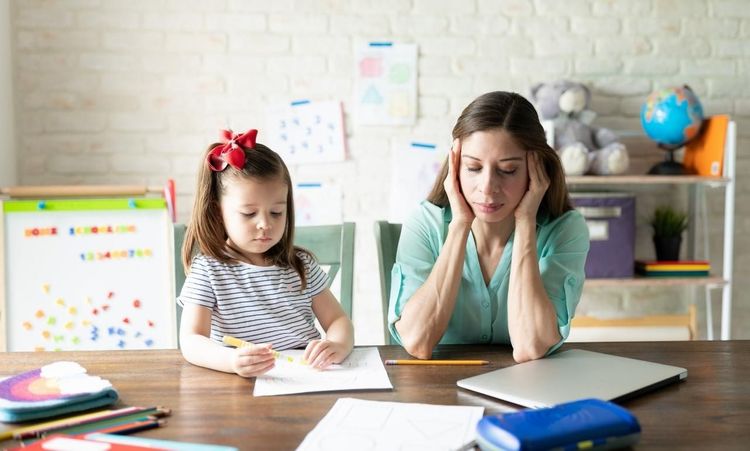Every learner begins with curiosity, but not every learner grows into independence. Many rely too much on guidance, waiting for approval before acting. True learning happens when students start trusting themselves.
So, how do we develop that kind of learner? How do we teach confidence, responsibility, and the power to think independently? The answer lies in teaching self-reliance—a skill that shapes character as much as intellect.
Self-reliant learners don’t just memorize information. They explore, question, and create their own paths. They build judgment through trial, not fear. This article explores what self-reliance means, why it matters, and how to nurture it in practical, meaningful ways.
What is Self-Reliance?
Self-reliance means trusting yourself to manage life’s ups and downs. It’s the courage to make choices without constant approval. A self-reliant learner believes they can think, act, and grow without depending on others to lead every step.
It’s not stubborn independence. It’s balance. A self-reliant person knows when to seek help and when to stand firm. That’s what makes it powerful—it’s grounded in awareness and responsibility.
In classrooms, self-reliance looks like curiosity. Learners ask questions, try new methods, and take charge of progress. They become lifelong learners who don’t crumble when faced with uncertainty.
Teachers and parents can see it when students take initiative. They stop waiting for instructions and begin directing their learning journey. That’s the moment growth truly begins.
Benefits of Self-Reliance
Why does self-reliance matter so much in learning? Because it builds confidence, maturity, and the courage to act. It gives learners the strength to think critically and take ownership of their progress.
When a learner is self-reliant, they no longer see mistakes as failures. Instead, they see lessons. They understand effort leads to improvement, and improvement builds confidence. That mindset can change everything.
Two of the greatest benefits of self-reliance are better decision-making and greater resilience. These qualities carry over into every part of life.
Improved Decision-Making and Personal Accountability
Good decisions shape good learners. When students think independently, they stop depending on others to solve problems. They start assessing situations, weighing risks, and choosing what works best for them.
Decision-making becomes an active skill. Learners ask: What happens if I do this? What could I try instead? These questions build critical thinking.
Accountability naturally follows. When learners understand their choices matter, they become responsible for outcomes. They learn that actions have results. That sense of ownership creates maturity and trust.
A student who learns accountability early develops strong character. They no longer blame circumstances. Instead, they look within, learn, and adapt. That’s the essence of real education.
Increased Resilience in Adversity
Life doesn’t always go as planned. Self-reliant learners know this better than anyone. When faced with challenges, they bend but don’t break.
Resilience isn’t built through comfort. It’s built through difficulty. Learners who rely on themselves learn to recover faster because they understand setbacks aren’t the end. They’re opportunities to grow stronger.
A self-reliant mindset says, “I can handle this.” That phrase alone changes behavior. Instead of quitting, they try again. Instead of complaining, they adjust.
When adversity strikes, they don’t wait for someone to fix things. They search for solutions, learn from failure, and move forward with grit.
Resilience doesn’t just help in school. It builds emotional strength for life’s unpredictable turns. That’s why teaching self-reliance isn’t just good practice—it’s essential.
How to Promote Self-Reliance
Creating self-reliant learners takes time. It’s a process, not a one-time lesson. Guidance must slowly shift from directing to supporting.
Teachers and parents can encourage independence by giving learners choices. Small freedoms help build confidence. When learners decide, they invest emotionally in their goals.
But freedom alone isn’t enough. They also need encouragement, trust, and structure. Self-reliance grows where responsibility and support meet.
Two key traits make this possible: inner confidence and discretion. Let’s explore how both help learners grow.
Building Inner Confidence
Confidence is the foundation of self-reliance. Without it, independence feels like a burden, not freedom. Learners need to believe in their ability to succeed before they can truly stand on their own.
Confidence grows through experience. When learners complete a challenge, no matter how small, they prove something to themselves. That proof builds belief.
Teachers can nurture this by praising effort over outcome. A simple “You worked hard on that” encourages persistence. Over time, persistence turns into courage.
Confidence also comes from making mistakes safely. If failure feels like shame, learners stop trying. But if failure feels like feedback, they grow stronger.
Encourage learners to take risks and share ideas. Let them voice opinions, even when they differ. When they feel heard, confidence blossoms.
True confidence doesn’t shout. It whispers, “I can handle this.” And that’s enough to keep moving forward.
Developing Discretion
Discretion is knowing when to act and when to hold back. It’s a subtle skill that develops with experience and reflection.
A self-reliant learner with discretion doesn’t rush decisions. They pause, think, and choose wisely. That ability comes from understanding consequences.
Teaching discretion means encouraging reflection. After a decision, ask learners what they noticed. Did the outcome match their expectations? What might they do differently next time?
This kind of discussion sharpens awareness. Learners start seeing patterns in their behavior. They become mindful, not impulsive.
Discretion is more than intelligence. It’s wisdom in action. It helps learners balance freedom with responsibility.
A student who learns discretion early develops strong judgment—one of the most valuable skills in adulthood.
Steps to Self-Reliance – Mandy Kloppers
Psychologist Mandy Kloppers outlines practical steps for developing self-reliance. Her approach emphasizes acceptance, confidence, and independence. These steps can guide anyone striving for personal growth.
Let’s walk through them, one by one.
Accepting Yourself and Being Your Own Best Friend
Everything starts with self-acceptance. You can’t rely on yourself if you don’t like who you are.
Being your own best friend means offering yourself the same kindness you’d give others. Stop criticizing every flaw. Start acknowledging your strengths.
When learners accept themselves, they stop chasing constant validation. They begin acting from confidence, not insecurity.
Ask yourself: Would I treat a friend the way I treat myself? That question changes everything.
Acceptance builds stability. It allows learners to grow without the heavy weight of comparison. That’s the soil where independence takes root.
Inner Confidence
Kloppers reminds us that confidence comes from facing fear, not avoiding it. Inner confidence isn’t loud—it’s quiet certainty built through persistence.
Each challenge faced becomes a small victory. Each victory strengthens belief. Over time, learners realize they can handle far more than they thought.
Encouragement plays a role, but real confidence grows from doing. When learners succeed through their own effort, they trust their ability more deeply.
Confidence isn’t about arrogance. It’s about peace of mind—the calm assurance that no matter what comes, you’ll figure it out.
That’s the kind of strength schools can’t teach directly, but experience can.
Making Our Own Decisions
Making decisions is a central part of self-reliance. It’s where independence meets accountability.
Kloppers suggests practicing decision-making daily. Choose what to study, when to rest, or how to solve a problem. Each decision builds judgment and personal responsibility.
When learners make their own choices, they learn from results. They understand that good or bad, the outcome belongs to them. That understanding builds maturity.
Avoid rescuing learners from every mistake. Guidance is good, but constant control hinders growth. Trust them to choose, even if it means failure.
Decisions shape destiny. Teaching students to decide with care prepares them for the real world, where choices define success.
Recognize and Manage Dependence
Dependence can be sneaky. It often hides behind comfort and habit. Kloppers points out that learning to recognize dependence is key to true self-reliance.
Everyone needs support sometimes. The problem comes when dependence replaces initiative. Learners who always look for help before thinking lose problem-solving skills.
Encourage learners to ask for help only after trying. That effort builds resilience and critical thinking.
Setting boundaries is part of managing dependence. It’s okay to rely on others occasionally, but it’s vital to know where self-effort begins.
The more learners practice self-management, the more confident and capable they become.
Accept Yourself for Who You Are
Self-acceptance completes the journey. It’s not just a step—it’s a lifelong practice.
Kloppers emphasizes that true self-reliance begins and ends with self-acceptance. When you embrace who you are, you stop performing for approval. You focus on growth, not perfection.
Learners who accept themselves stay motivated through tough times. They know their worth isn’t tied to grades or opinions. It’s internal.
Acceptance doesn’t mean ignoring flaws. It means recognizing them without harsh judgment. That mindset fuels continuous improvement and emotional balance.
A learner who accepts themselves stands tall in both success and failure. That’s real independence.
Conclusion
Developing self-reliant learners isn’t about letting go completely. It’s about trusting them enough to grow. It requires balance—guidance when needed, freedom when earned.
When learners believe in themselves, they think boldly, act wisely, and recover quickly from mistakes. They stop fearing failure and start learning from it.
Self-reliance builds confidence, character, and courage. These traits carry learners beyond classrooms, preparing them for life’s unpredictable paths.
Start small. Let learners decide. Encourage reflection. Celebrate progress. These moments shape strong, self-assured individuals ready for the world.
So ask yourself—are you helping learners depend less on you and more on themselves? If so, you’re already creating a generation of thinkers, doers, and dreamers who trust their own minds.




